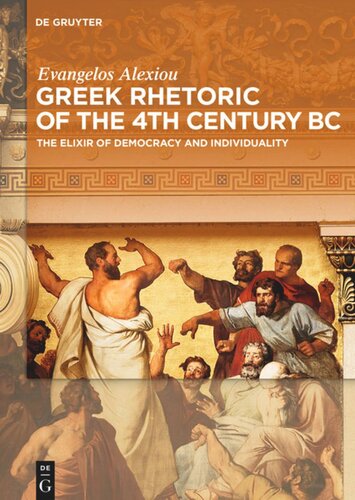

Most ebook files are in PDF format, so you can easily read them using various software such as Foxit Reader or directly on the Google Chrome browser.
Some ebook files are released by publishers in other formats such as .awz, .mobi, .epub, .fb2, etc. You may need to install specific software to read these formats on mobile/PC, such as Calibre.
Please read the tutorial at this link: https://ebookbell.com/faq
We offer FREE conversion to the popular formats you request; however, this may take some time. Therefore, right after payment, please email us, and we will try to provide the service as quickly as possible.
For some exceptional file formats or broken links (if any), please refrain from opening any disputes. Instead, email us first, and we will try to assist within a maximum of 6 hours.
EbookBell Team

4.3
68 reviewsThe interaction between orator and audience, the passions and distrust held by many concerning the predominance of one individual, but also the individual’s struggle as an advisor and political leader, these are the quintessential elements of 4th century rhetoric. As an individual personality, the orator draws strength from his audience, while the rhetorical texts mirror his own thoughts and those of his audience as part of a two-way relationship, in which individuality meets, opposes, and identifies with the masses. For the first time, this volume systematically compares minor orators with the major figures of rhetoric, Demosthenes and Isocrates, taking into account other findings as well, such as extracts of Hyperides from the Archimedes Palimpsest. Moreover, this book provides insight into the controversy surrounding the art of discourse in the rhetorical texts of Anaximenes, Aristotle, and especially of Isocrates who took up a clear stance against the philosophy of the 4th century.